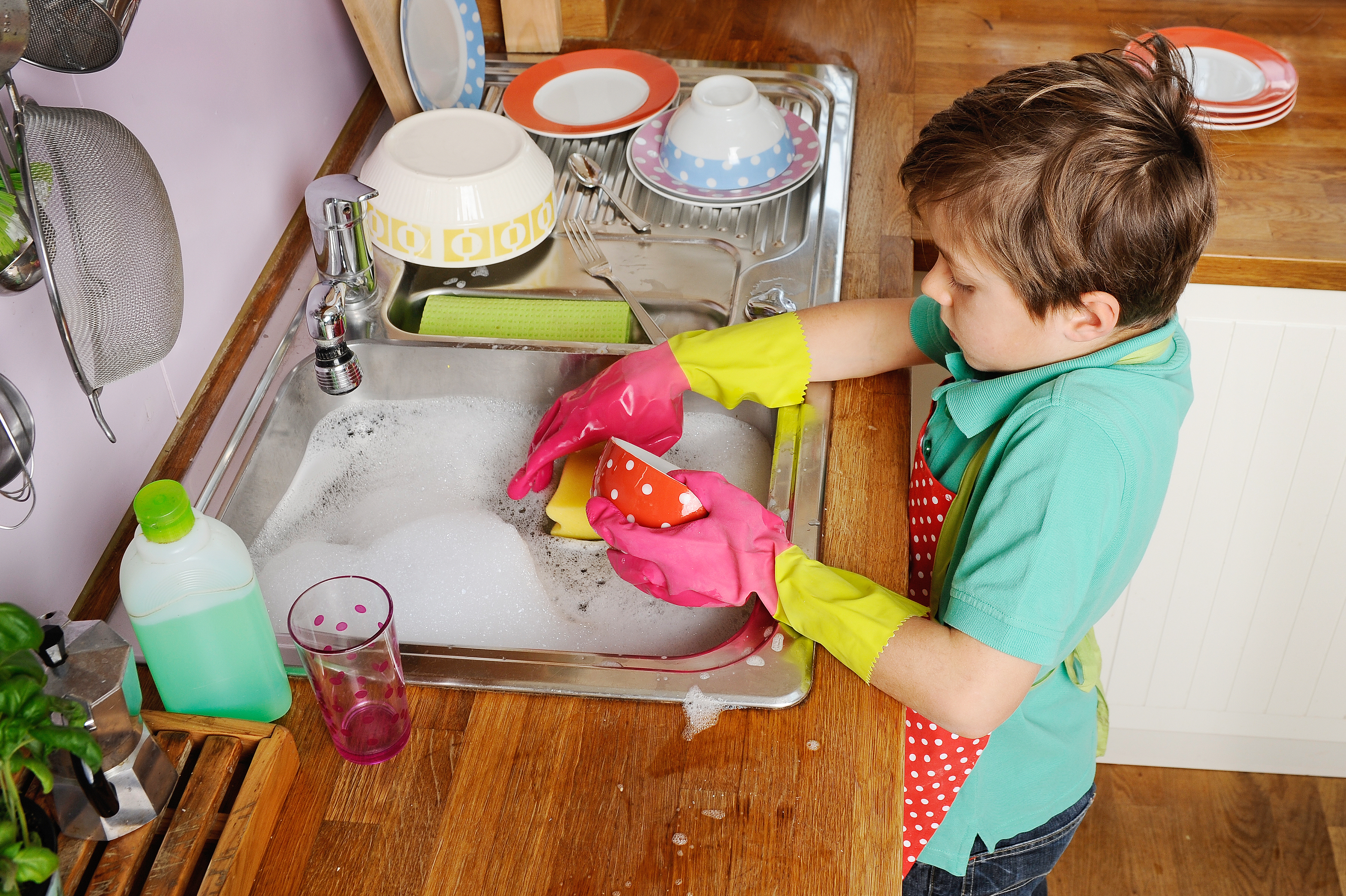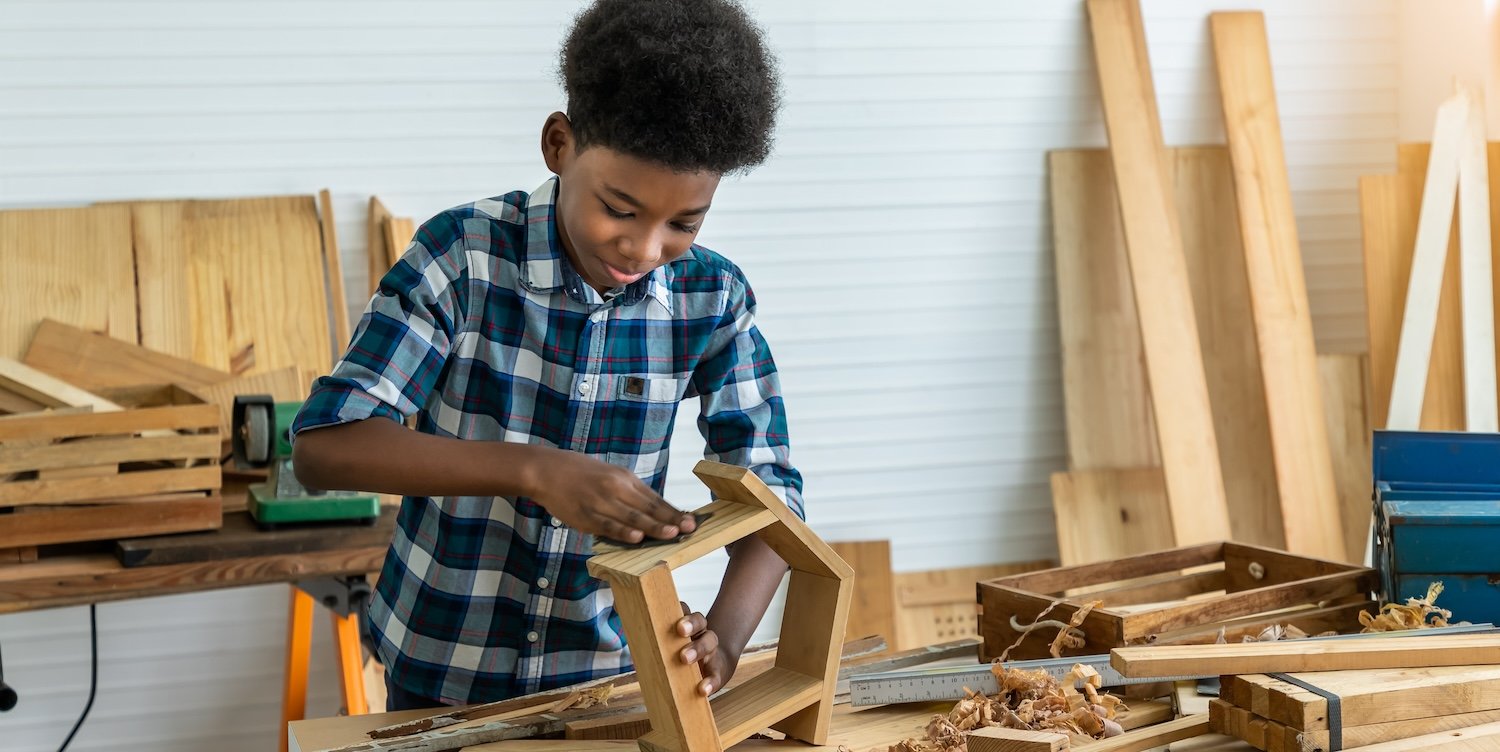From Allowance to Autonomy: Why Chores Matter

Chores are, by definition, routine and typically unpleasant. No one relishes doing these activities and they have suffered witty lashings by insightful social commentators such as Mark Twain. Piquant observations aside, regular chores like taking out the trash, washing the dishes, and cleaning are essential to the development of the minds of young people.
Growing up is a tough business for everyone involved.
What it takes to be a grown-up – making good decisions, learning to persevere, being kind, the list is longer than this blog – takes a lifetime of practice. In How To Raise An Adult, Julie Lythcott-Haims points to the work of Dr. Marylynn Rossman, professor emeritus of family education at the University of Minnesota, that uses “not using drugs, having quality relationships, finishing education, and getting started in a career” as measures of success in adulthood. Interpreting research studies by University of California-Berkeley developmental psychologist Diana Baumrind, Dr. Rossman concluded that greater success was associated with beginning to do chores at an early age.
Of course, what children learn by doing chores extends beyond the specific skill. A four- or five-year-old setting the table doesn’t just learn which side of a plate to place a fork or knife; a seven-year-old doesn’t just learn how best to rake up and place leaves into a yard waste bag; a ten-year-old doesn’t just learn how to rinse dishes or use the dishwasher; a thirteen-year-old doesn’t just learn how to operate a lawnmower (all age-appropriate jobs, as listed in The Good News About Bad Behavior by Katherine Reynolds Lewis). By engaging in these activities, each of these young people contributes to the family and performs a useful function. According to Lythcott-Haims, children also “learn accountability to meet a deadline and a particular level of quality, determination to get a job done, perseverance when challenges are met, and the value of taking the initiative instead of waiting to be asked.”
If your son is anything like me at thirteen, a reminder to cut the grass and stop playing Fortnite might not be received with abundant enthusiasm. Against a backdrop of advice about “authoritative parenting,” Lewis suggests how to address a resistant child in her book, The Good News About Bad Behavior. “Bring it up another day. Introduce humor. Ask them to give it a try for a week. Tell them you honestly need help. If all else fails, start very small and look for tiny contributions they do make… Focusing on the positive contributions they do make will work better than lamenting all that they don’t do.” Referencing research presented in Carol Dweck’s Growth Mind-Set, Lewis adds that to motivate children, any given praise should be “specific… and focus on effort.”
This may work for some, but if the suggestions seem a little utopian, you’re not alone. In an August 18, 2018 article for The New York Times, K. J. Dell’Antonia, author of How To Be A Happier Parent, points to research conducted between 2001 and 2005 at U.C.L.A.’s Center on the Everyday Lives of Families. They “recorded 1,540 hours of footage of 32 middle-class, dual-earner families with at least two children going about their business in Los Angeles. They found that the parents did most of the housework and intervened quickly when the kids had trouble completing a task. Children in 22 families made it a practice to ignore or resist their parents’ requests for help. In eight families, the parents didn’t actually ask children to do much of anything. That leaves two families in which kids meaningfully helped out.” Dell’Antonia ends the article by wondering if parents might be looking “for some golden advice on getting your children to step up” or “a link to click to make the magic happen.” In her view, there’s no wand to wave “because unfortunately, getting children to do chores is an incredibly simple two-step process: insist, and persist, until the chore is done.”
Either way, adults setting clear expectations and holding children accountable is essential. Raising Teens, the 2001 report by Dr. A. Rae Simpson and published by the Harvard School of Public Health, summarized “Ten Tasks of Adolescence” and “Five Basics of Parenting Adolescents.” Although adolescents look to “meet the demands of increasingly mature roles and responsibilities” and “renegotiate relationships with adults in parenting roles” they also “see parents as retaining authority to set moral and social rules, to monitor their behavior, and to hold expectations around school, chores, and other areas of performance.” The report added, unsurprisingly, that teens “disagree with parents about the limits of their authority.” I did say growing up was tough for everyone!
Keeping firm expectations in mind, the key to success seems to be autonomy while performing an activity. Explaining why something is important and letting children try it works in the classroom and at home. “According to self-determination theory [a theory from the field of psychology], the best way to motivate a child (or an adult for that matter) is to support their sense of control,” says Dr. William Stixrud and Ned Johnson in The Self-Driven Child. “Hundreds of studies of schools, families, and businesses have found that explaining the reasons why a task is important and then allowing as much personal freedom as possible in carrying out the task will stimulate much more motivation than rewards or punishments.”
At no point in my life have I believed taking out the trash to be fun. But fun isn’t the point or the goal. Engaging in chores helps children understand they have a role to play in the function of the home, teaches perseverance, and assists in forming a foundation of adulthood.
Speaking of which, it’s time to do the dishes.
Joe has a career in education that spans 20 years, including his work at University School for more than 10 years as a teacher and administrator. His experience with middle schoolers and their families includes teaching music, serving as class dean, and working as an admission officer. He received his master’s and bachelor’s degrees from King’s College in London.


%202.jpeg)
